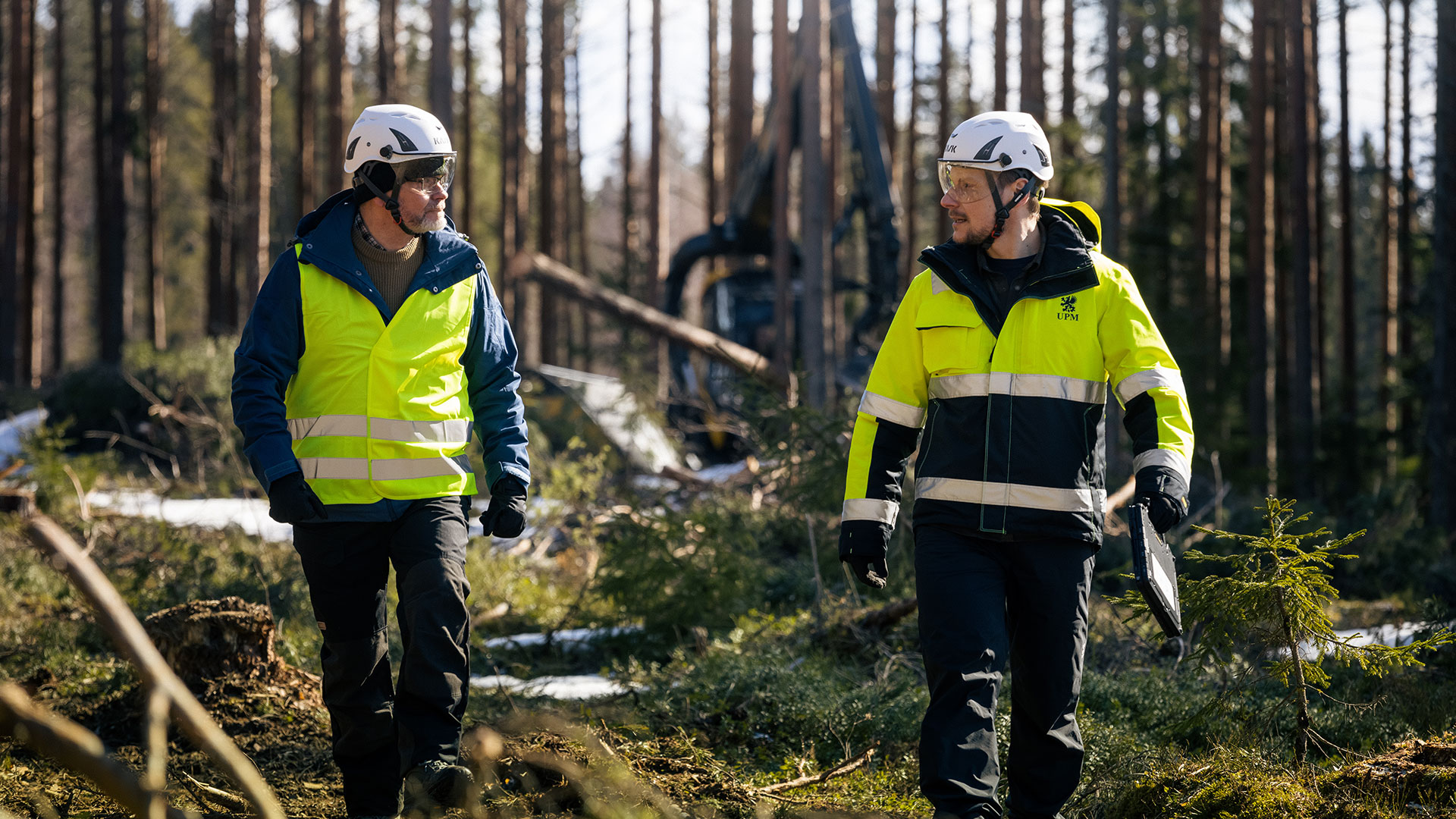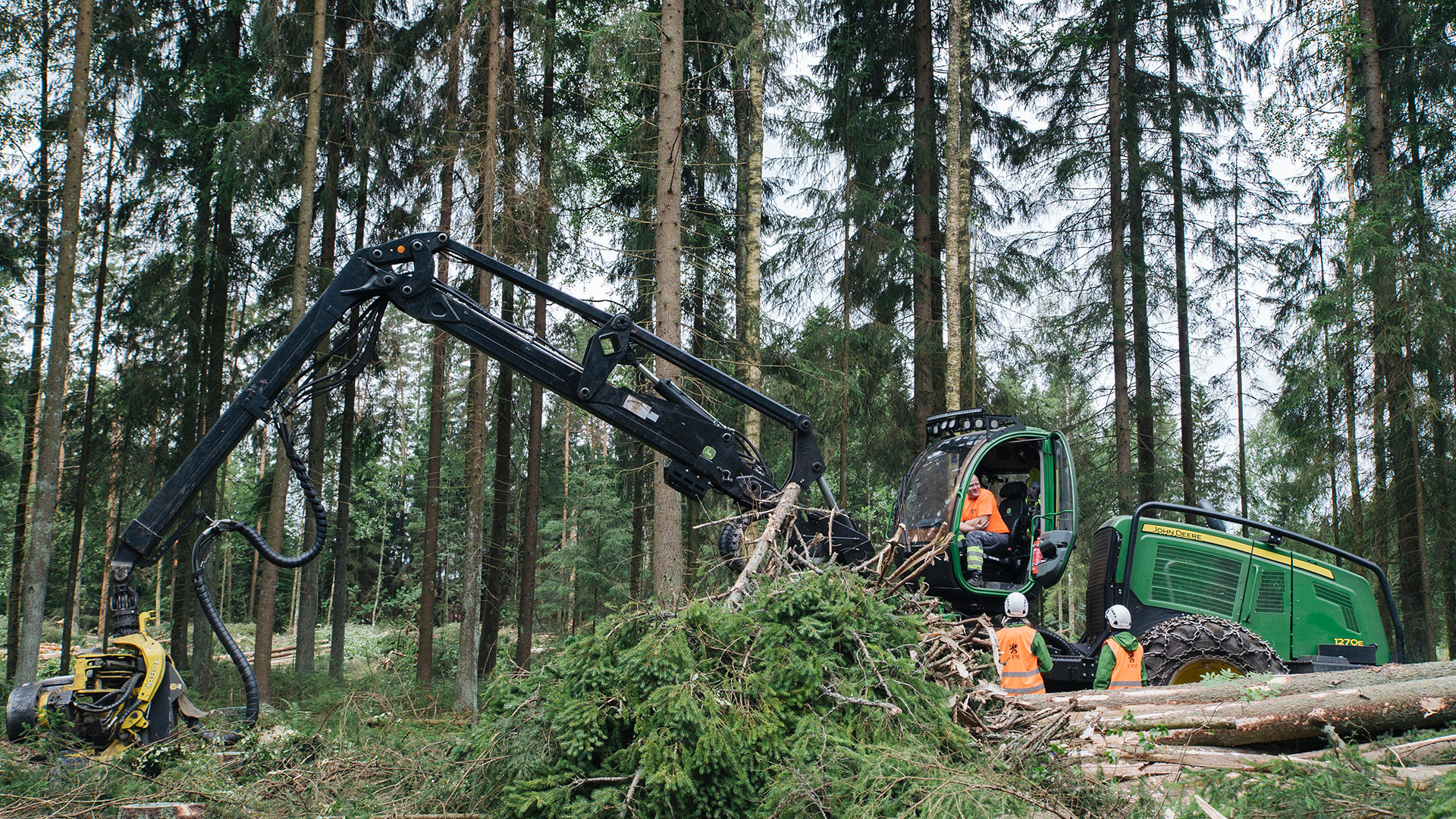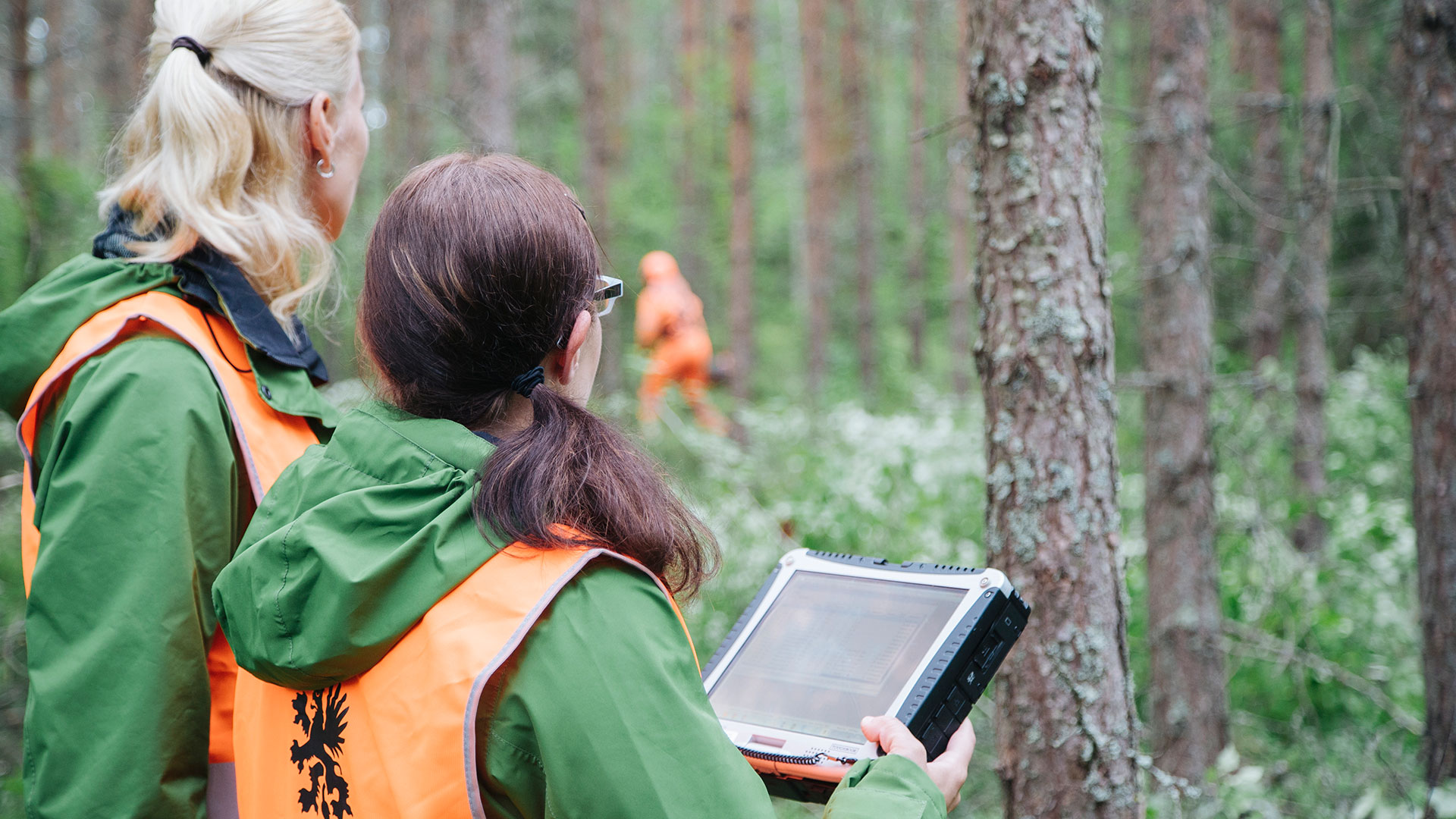By knowing its customers, suppliers and other business partners while building good business relationships with them, UPM improves business performance and security of supply and ensures business continuity. This also minimises the risk of becoming involved in illegal activities or incurring losses or reputational damage from business relationships.
Therefore, UPM carefully selects its partners based on objective criteria, such as requiring them to comply with the law in their own operations. We require suppliers and partners, agents and intermediaries, to comply with the UPM Supplier and Third-Party Code. We also require direct suppliers to impose the same requirements on their subcontractors.
As UPM Forest's supply chain becomes more international, UPM aims to gain greater visibility on recruitment, employment contracts, working hours, payment practices, travel and accommodation of employees and to ensure that they comply with UPM Code of Conduct. To this end, UPM launched a supply chain supplier audit project in 2020 by training auditors, developing audit questionnaires and self-assessment forms for contractors. In the past year, the project progressed to the actual audits.

A new supplier assessment model
UPM Forest's supply chain includes more than 100 logging and transport companies. Audits have also been initiated for these companies, and the aim is to complete them over the next four years.
Suppliers are audited through obligations based on external quality and environmental management systems and the PEFC and FSC certifications. In addition to these, a brand new supplier assessment model tailored to contracted companies has been launched.
"The new assessment model goes into more detail than the general audits. The work has got off to a good start and the audits will continue this year," says Marko Nevalainen, Manager, Resources at UPM Forest.
UPM Forest has a highly efficient and committed network of contractors.
"The perception has been further strengthened by the assessments. Our suppliers are able to carry out forestry contracting work in a reliable and modern way, and they also have quite advanced work management solutions, quality control and personnel management," says Nevalainen.
The contractor network has carried out risk assessments and issued safety instructions. According to Nevalainen, safety at work is one of the areas for development.
"In logging and forest logistics, heavy equipment is used and heavy loads are moved. There are risks in the working environment that need to be known and managed," he stresses.
According to Nevalainen, there is still room for improvement in overall safety management and safety work.
"We want to be shaping an environment that makes these issues a competitive factor, not only for UPM but also for the contractor network and individual contractors."
A common challenge that has emerged from the discussions is the shortage of domestic talent in the forest sector. Numerous entrepreneurs have raised the issue of labour availability. In the forest sector, there is fierce competition between entrepreneurs for qualified personnel for basic contracting work. The same challenge can be seen in forestry performance work, where labour availability has been compensated by foreign seasonal labour.

Working conditions assessed
UPM buys wood and delivers it to its mills. In addition to raw material purchases, UPM buys services. UPM does not have its own logging or transport equipment, and everything comes from service suppliers. Through its suppliers, UPM subcontracts forest management services such as planting, seedling stand management, tillage, young forest management and fertilisation. There are nine service provider companies who form a forest management franchise chain under the UPM brand.
"We have started auditing our direct suppliers. It's a one-day event where we look at their systems in the office. We look at their management system, their responsibility issues and how they manage the foreign labour on their payroll," says Petri Heinonen, Senior Specialist, Environment at UPM Forest.

The audits have been carried out in good co-operation with the companies. There is a common understanding of the importance of the task and at the same time important information about the areas for development is also passed on to UPM. In 2021, audits were carried out for six out of nine companies and the remaining three will be carried out this year. In the next phase, the plan is to go deeper from the offices to the field conditions in the supply chain.
The companies' seasonal labour comes from abroad, mainly from the Baltic states and Ukraine.
"For foreign workers, we check how they are recruited, how they are accommodated and how their employment contracts are drawn up", says Heinonen. "We also look at the basis and practices for paying wages and how working hours are recorded."
He says that, in general, things are working well in all sectors. The audits have identified some areas for improvement, and suggestions have emerged from discussions on both sides.
The areas identified so far relate to the coordination of administrative systems, which, if implemented, would improve transparency and flexibility.
"We have also identified areas for improvement in the transition to local employee negotiation system, in the sharing of information on legislative changes and reforms between different actors, and in finding a common language across the geographical spectrum of the supply chain. They will be used to consider further measures."